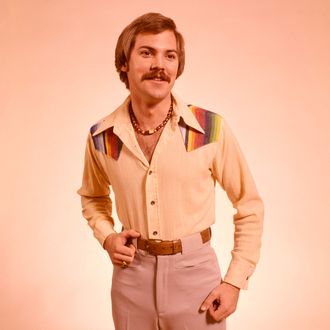
Here is a new finding in behavioral science that I think we can all get behind: A new Harvard Business School working paper suggests that if you ask your friends and family to shower you with praise, you will perform better at stressful problem-solving tasks. The term they use for this is “best-self activation,” the idea being that if you are reminded of a time you were performing at your very best, it will motivate you into reaching high standards once again.
In one experiment, the researchers — including HBS professor Francesca Gino — recruited 75 people into the Harvard Decision Science Laboratory for an afternoon of various tasks intended to measure their problem-solving skills, among other things. About half of the participants weren’t given any special instructions prior to reporting to the lab. But the other half were told to send emails to their friends, family, and colleagues, asking them to write about three separate occasions during which they’d seen the study participant at his or her best. They sent these notes straight to the researchers, who gave them to the study participants to read before beginning their day of tackling weird psychological tests. Some of the responses were sweet, like this one:
I remember the time when you stayed up all night to make sure that I knew I was worth more than what my high school bullies would try to make me believe. Your compassion and words allowed me to feel loved in a world that is often cruel. You reminded me of my potential to be a great yet humble person. During those blinding moments, you showed me a lot more about myself that I might not have known until years later.
One of the tasks they took on that afternoon was the Duncker candle problem, something of a classic in psychology research. Participants are handed three objects — a box of tacks, a candle, and a box of matches — and are instructed to mount the candle onto a nearby wall so that the wax doesn’t drip onto the floor. The solution involves a little creative thinking, in that the person must be able to envision the box of tacks as another thing entirely: If emptied out, it can be used as a platform to hold the candle.
Everyone was given three minutes to come up with a solution, and in the end, the participants who had just read about their “best self” moments did much better than those who hadn’t read any personal notes. More specifically, 51 percent of those who’d gotten the emails before starting were able to figure the candle thing out; in contrast, just 19 percent of the others managed it within the allotted time. Other experiments recounted in the paper found that the “best self” group was better able to withstand the indignities of social exclusion, and that they were better able to keep their cool when presenting a three-minute speech about themselves in a mock job interview, than those who hadn’t been reminded of a time they were at their best.
The “best-self activation” idea is intriguing for two reasons, the first being, well, who doesn’t like compliments? But the second, as Gino and her colleagues argue in their paper, may lead to practical applications in the workplace. Rather than end-of-the-year evaluations that focus on the employee’s weaknesses, they suggest that reflecting on the times the employees were at their very best may turn out to be a better motivator. “Most societies and organizations have not created vehicles for reminding people who they are when they are at their best, even though theory suggests that this information can inspire them to achieve more of their potential,” the researchers write. “These results suggest that there is considerable lost potential in keeping silent about how others affect us when they are at their best.”




